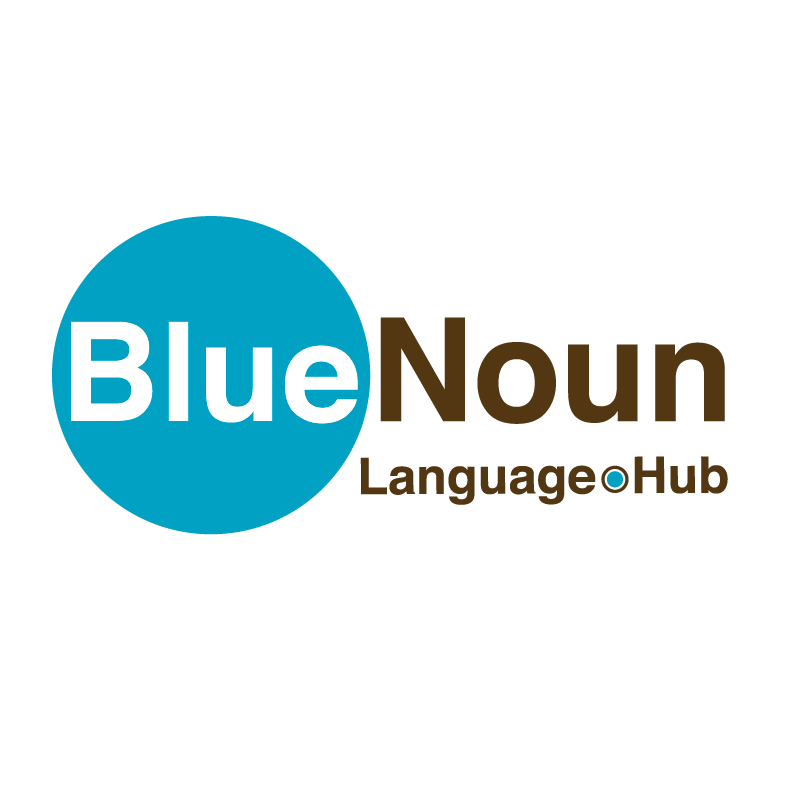Books, Books Lovely Books
At Blue Noun, books are an integral part of our language guest’s English immersion experience.
Of course, we need our preferred dedicated language books to check grammatical oddities (the last one was the rules for when to say ‘eldest and when to use oldest’), and ELT course books.
Our Language School Library
However, more importantly, we also need a vast array of books in our reading library.
All our language guests can help themselves and also come read within our space by day, evening and weekend.
Topics
We have non-fiction books on most subjects, but particularly Travel, Scotland, Art, Design, Fashion, Ecology, Business/Management and Autobiographies.
We have many and varied fiction books for learning English and a burgeoning collection of work by contemporary Scottish authors.
Books for Learning English in Scotland
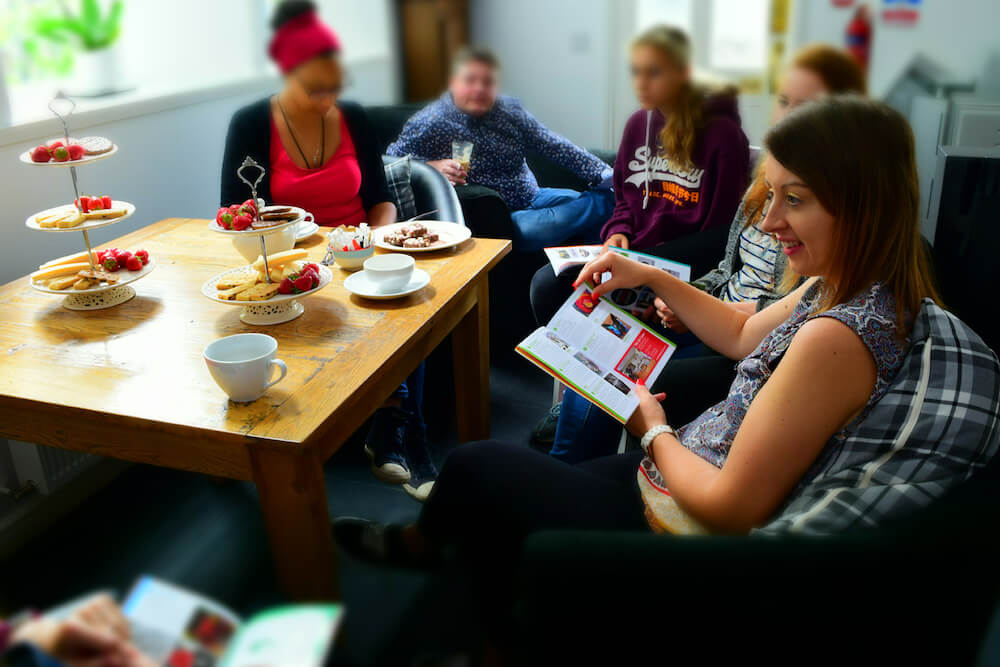

It’s Personal
Our fiction books are chosen to include some English literature classics, to showcase some Scottish authors who we admire and to provide a range of accessible but interesting and entertaining stories – which even includes young person’s fiction (these too can be great stories, but have reliably simpler language).
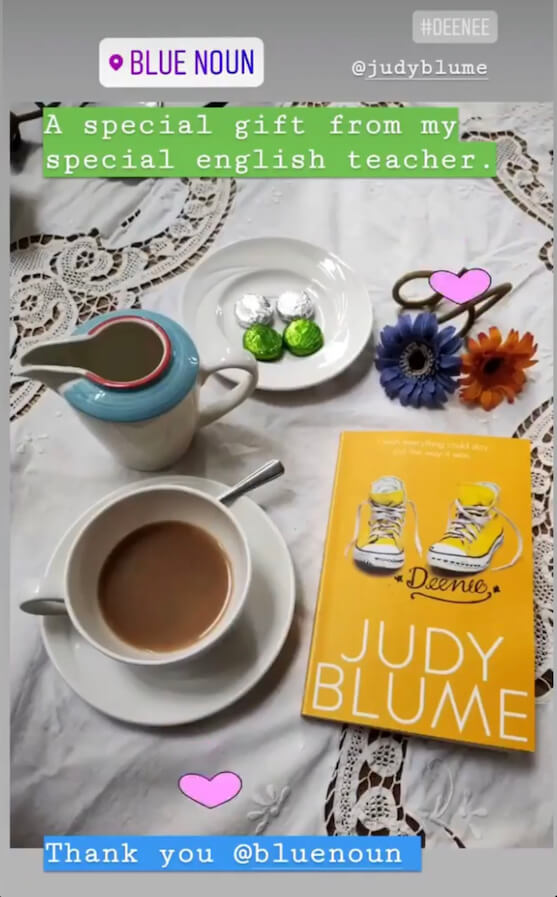

Tips for Using Books for Language Learning
Chose a book which you would find addictive in your own language – for this reason, lots of people chose J.K. Rowling‘s Harry Potter, as you just want to keep reading – it’s a ‘page-turner’.
While some people plough through it with a dictionary, conjugating every verb as they go, others (my camp) just try to forget that they are reading something ‘other’ and sink into the story.
If the book is matched at the right level, it is amazing how quickly you surrender completely to the new experience.
Treat Yourself
I often recommend books within the ‘chick-lit‘ category too. Not only do they have great storylines (in a boy meets girl kind of way), they are packed with typical conversational language, everyday terminology and contemporary cultural references.
Life Changing Moments
I Thought My Father Was God
This is an anthology of true-life stories, written by Americans answering an NPR short story project request. They are mostly short, vivid narratives that give very complete glimpses of a fragment of peoples lives – times of passion, grief, heartbreak or wonder.
Perhaps I like it so much because I lived in America for three years, but reading this book is to realise that physical travel is only one way to discover a country and its people: a book like this can get you into places (and minds) you would never ordinarily find.
Each story is short, sweet and thought-provoking: perfect for including into English class, then discussing.
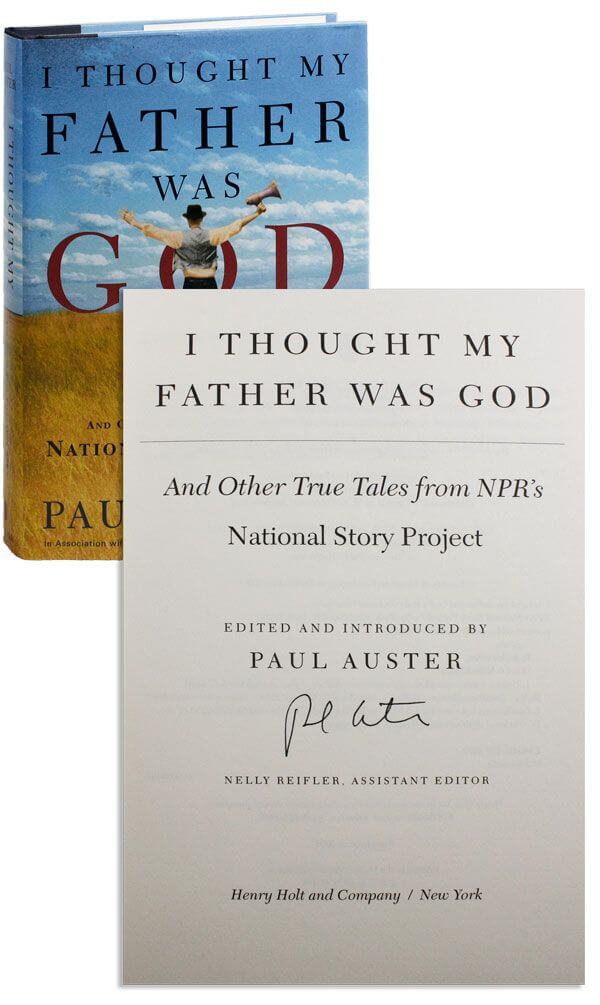
“It’s really important to us that all our language guests can help themselves to these books, and come read within our space by day, evening and weekend. We’ve even got cosy blankets!“
Ruth, 2019
Our Non-Fiction Books for English Learners
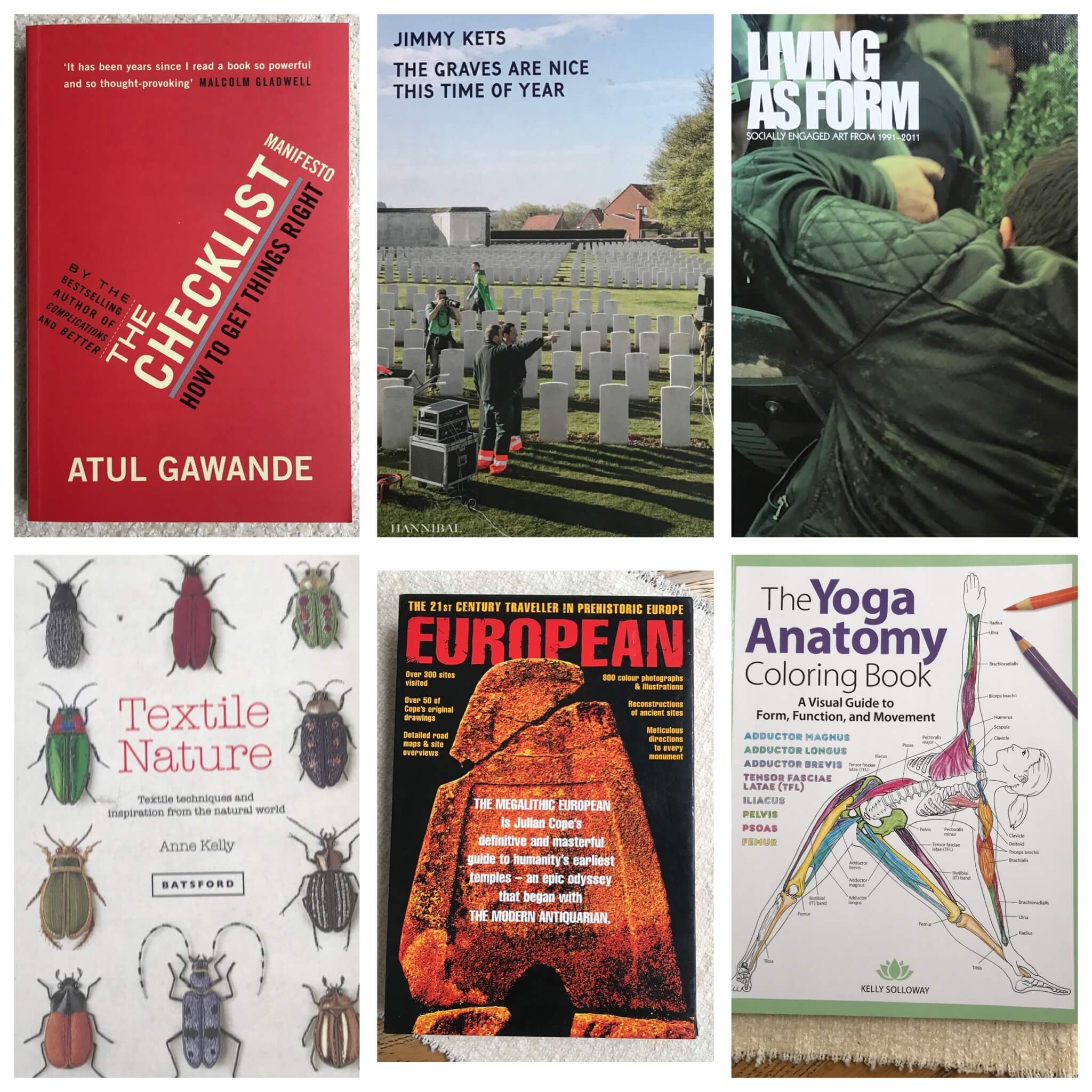
Non-fiction from the Blue Noun Language Hub book library.
“I often recommend books within the ‘chick-lit‘ category too. Not only do they have great storylines (in a boy meets girl kind of way), they are packed with typical conversational language, everyday terminology and contemporary cultural references.“
Ruth, 2019
Recommended Books for English Learning | Fiction
Our English language guests help themselves to our fiction library.
There may be some unexpected things in it, such as the complete series of Andy Stanton‘s Mr Gum books. (These are there because they are hilarious and great to read out loud).
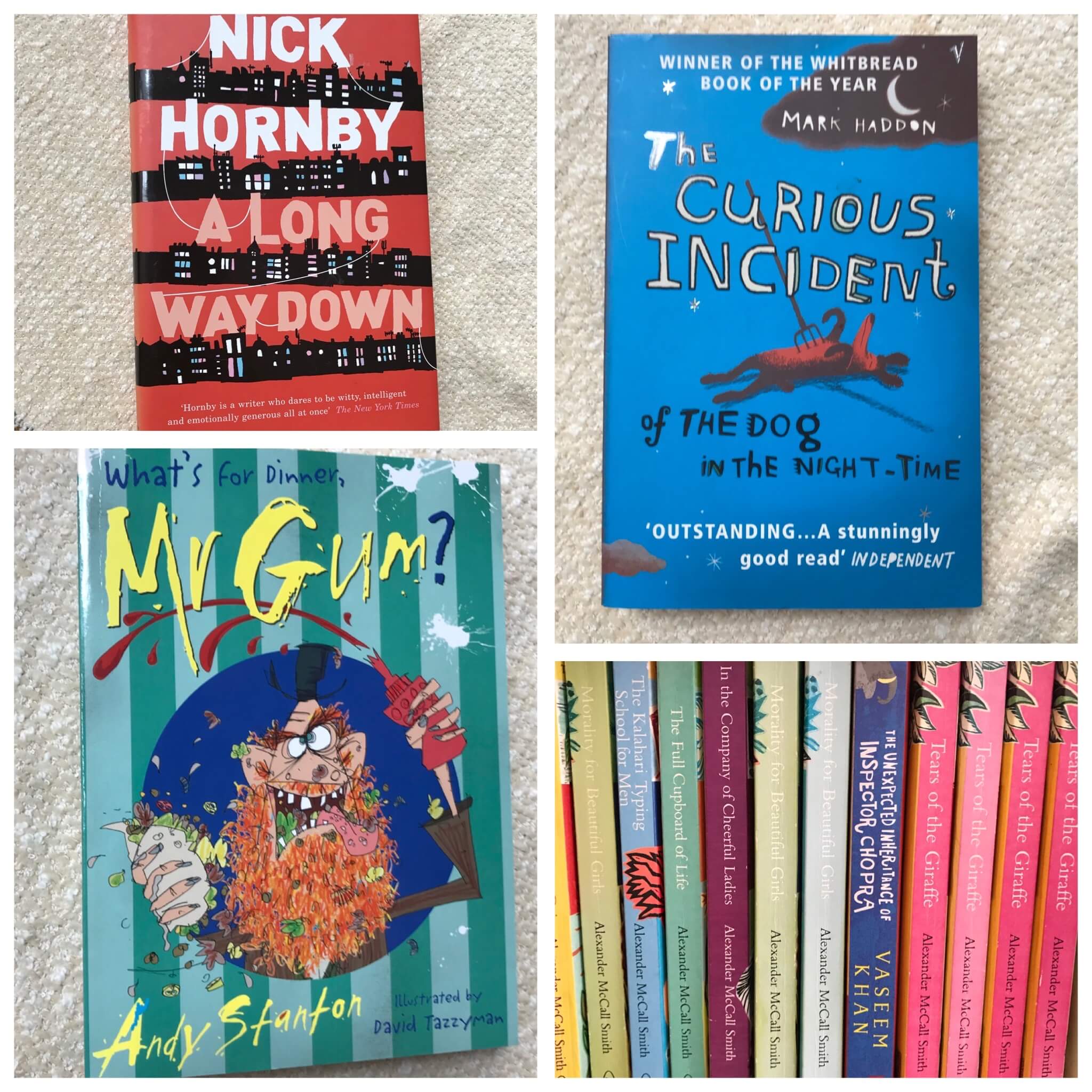
Fiction from the Blue Noun Language Hub book library

Curl Up With a Book!
Most of our English-learning guests have been book lovers.
We have a reading area at Blue Noun Language Hub with comfy sofas and chairs.
Because our language guests are welcome to hang out in our space from 7 am to 10 pm, it’s a great place to spend time, enjoy a coffee (or a whisky) with your nose in a book.
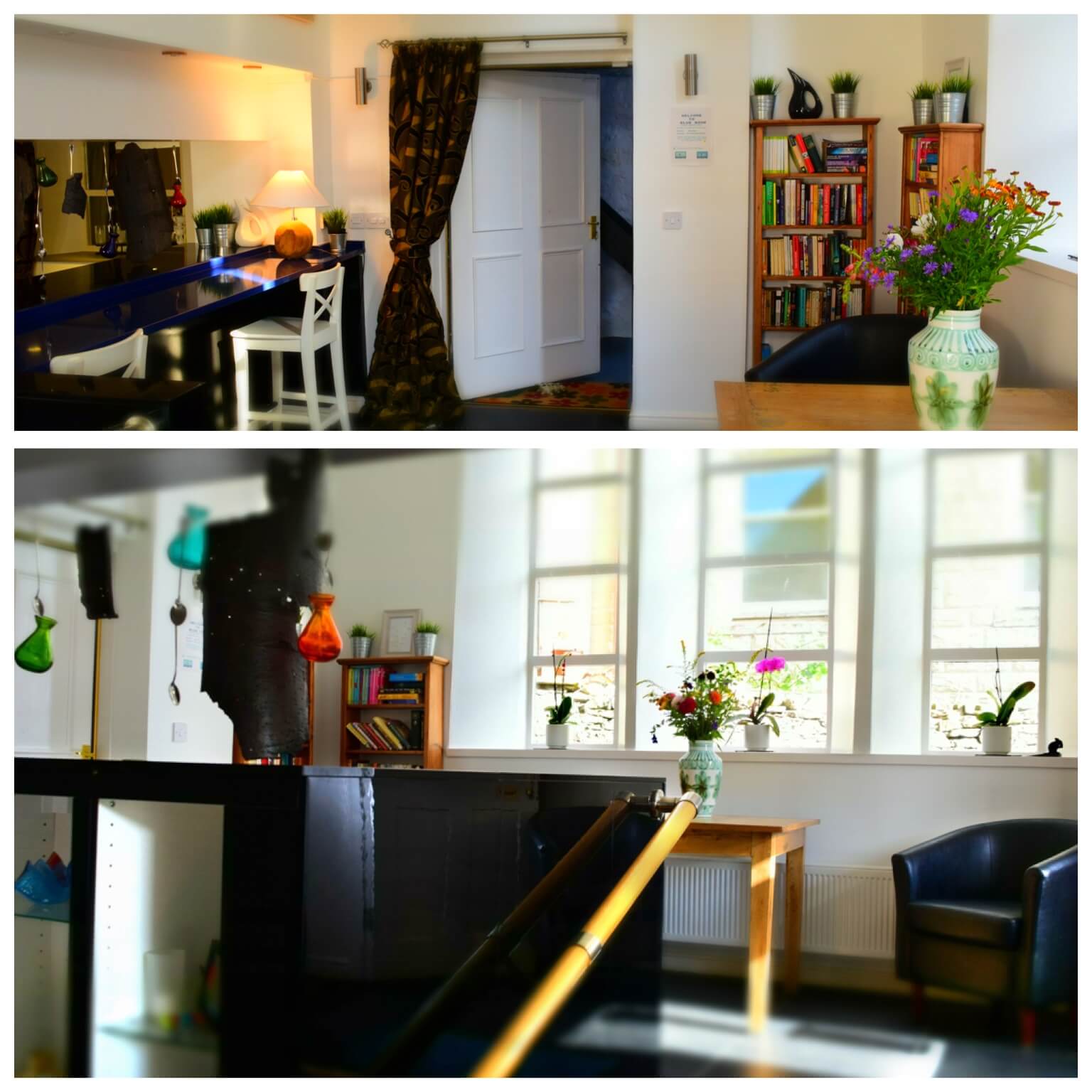
The Blue Noun Language Hub Reading Area, 2020

More for Bibliophiles
We hope you’ve enjoyed us sharing our love of books with you.
You might like to glance at some Scottish poetry – and pick up some tips for English learners while you’re at it.
3 Tips for English learners in Scotland | Learn English and Scottish Culture
Your English Language Challenge
Tell us about how you consume books. Where do you buy them? When do you read them? How do you choose them? How do you read them? What are the taboos? What would you never do?
Lend and borrow are often confused by English language learners. Remember lend (give) & borrow (receive).
Use lend and borrow in your answer
How do you read yours?
As usual, if you want us to correct any sentences, just write CP (correct please at the end of your comment).
